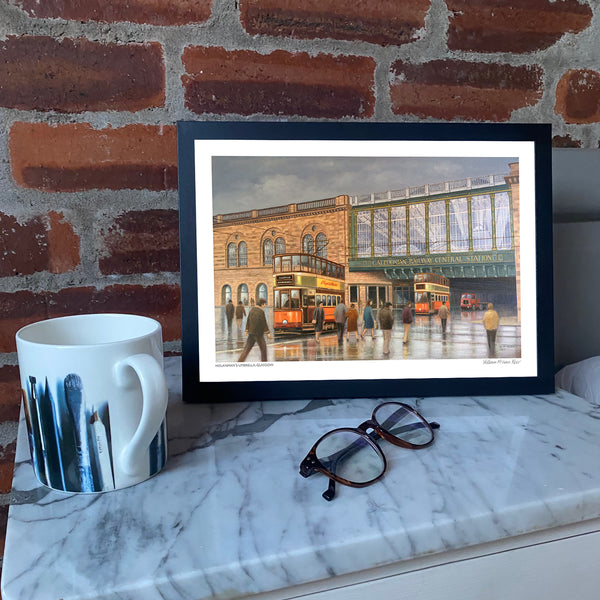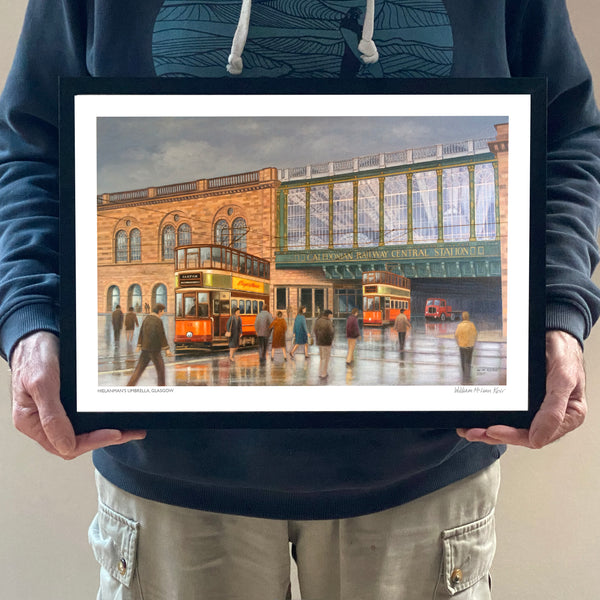The Hielanman's Umbrella, Glasgow
Tax included
Shipping calculated at checkout
In stock
Open edition with printed signature.
This print is of a painting which looks back to the days of the trams viewed at the junction of Hope Street and Argyle Street in Glasgow, around the 1950s. I’ve used a bit of imagination here - and a little ‘artistic licence’ - in the hope that I could give the feel of what it might have been like around that time.
The ’Hielanman’s Umbrella’ (Scottish for Highlandman’s Umbrella) is an affectionate nickname for the Victorian style glass walled railway bridge at Glasgow’s Central Station. As a result of the Highland Clearances in the 19th century, some 30,000 highlanders came to Glasgow looking for work. They continued to arrive for many years and would meet under the bridge at weekends to swap news and
tales from their homelands.
Glasgow Corporation tramways, the organisation which ran the trams, was one of the largest urban tramway systems in Europe. Glasgow Tramways Committee instigated the electrification of the tram system, with the route between Mitchell Street and Springburn being chosen for the experiment. The Pinkston Power Station, an electricity generating station was built at Port Dundas and it opened in 1901. Over 1,000 municipally owned trams were covering over 100 route miles by 1922 but then the trams began to be gradually phased out in 1949. The system finally closed in 1962 when trolley and diesel-powered buses took over. It was the last city tramway in Great Britain (before the new tram systems in the 1990s).



